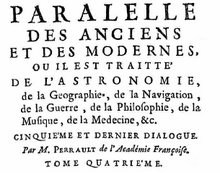Redéfinition du théoricien : l’exemple d’Andreas Werckmeister, traditionnel-spéculatif et moderne-pratique
(Andreas Werckmeister, Music Theorist with Two Faces, Traditional-Speculative and Modern-Practical)
- Argument
Andreas Werckmeister (1645-1706) is one of the most important German music theorists of the late seventeenth century. He worked as an organist in various towns in Thuringia, in relative isolation. As a composer he is of peripheral importance. It is his writing on music, in German, that has given him a lasting place in the history of music history. From 1681 until his death he published twelve texts on music of differing length, scope, and character. The wide range of topics discussed by him may be grouped into four classes: 1. Organ building, 2. Tuning and temperament, 3. Practical music theory or music theory proper, and 4. Speculative music theory. His main texts in these four fields are, respectively, the Erweiterte Orgel-Probe (1698), Musicalische Temperatur (1691), Harmonologia musica (1702), and Musicalische Paradoxal-Discourse (1707). In many cases his texts treat topics from more than one of these fields.
Werckmeister not only tells us what the rules of music theory are, he also wants to tell why they are as they are. He looks for and find his explanations in “Nature”, a concept that means for Werckmeister erevything that is not man-made and therefore made or created by God. It includes what we usually call “Nature” but also, for example, the numbers and the human body and mind, simply because they are not made by man, but found by man in his environment. “Nature” always had an order imposed on it by God, in accordance with the words from the Book of Wisdom that God has “ordered all things in measure and number and weight” (sed omnia in mensura, et numero et pondere disposuisti. Liber Sapientiae, 11, 21). The use of “Nature” satisfied Werckmeister’s need for a foundation of the theory of music in his Christian (Lutherian) faith.
Especially number theory proved useful for the foundation of music theory. Numbers could be used to define intervals, and intervals are, of course, in the midst of music theory. Also temporal aspects of music, rhythm and meter, can be succesfully described in numerical terms. Numbers can also be used to develop a theory of tuning and temperament. And the use of numbers to construct a theory of music had a long history, including Antiquity, the Middle Ages, and the more recent music theory of Zarlino and many others, thereby satisfying Werckmeister’s need for authority and tradition.
The application of number theory as the foundation of music theory has, however, also its limits and these limits were clearly noticed by Werckmeister. Number theory would forbid, for example, temperament (because this implied a deviation from a true ratio) and would allow parallel fifths and octaves (because these could be described by simple numbers). But Werckmeister was a musician too and he knew that temperament was necessary when tuning an organ and parallel fifths and octaves could not be allowed in musical composition. So he deviced explanations to help him out of these problems. And after that he went one with straightforward tuning theory and music theory, liberated from the burden of number theory.
That means that in Werckmeister’s writings there is a constant switching between the speculative foundations of music and the practical description of actual phenomena, be it regarding music theory, tuning and temperament, or organ building. As a theorist this means a constant shift between a beckward looking, traditional-speculative, and a forward looking, modern-practical orientation.



Aucun commentaire:
Enregistrer un commentaire